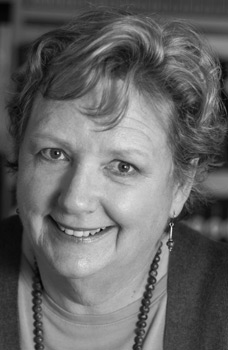Author Biography | Interview | Books by this Author | Read-Alikes

Susan Rivers was awarded the Julie Harris Playwriting Award for Overnight Lows and the New York Drama League Award for Understatements. She is also the recipient of two playwriting grants from the National Endowment for the Arts and has had short fiction published in the Santa Monica Review. In 2007 she earned an MFA in fiction writing from Queens University of Charlotte in North Carolina, where she was also awarded a Regional Artist Grant from the Arts and Sciences Council. She currently lives and writes in a small town in upstate South Carolina. The Second Mrs. Hockaday is her first novel.
This bio was last updated on 01/12/2017. In a perfect world, we would like to keep all of BookBrowse's biographies up to date, but with many thousands of lives to keep track of it's simply impossible to do. So, if the date of this bio is not recent, you may wish to do an internet search for a more current source, such as the author's website or social media presence. If you are the author or publisher and would like us to update this biography, send the complete text and we will replace the old with the new.
Voices, an essay by Susan Rivers
In the summer of 2014, I was in the library near my home in rural South Carolina. I was doing research for a book I'd been trying to write on and
off (mostly off ). It can be a hellish experience for a writer when no amount
of work on a project pays off in terms of the story taking flight, and that was
the case with my draft about a middle-aged woman living on a farm during
the Civil War. I seemed unable to locate the nexus of the story, what Turkish
novelist Orhan Pamuk so aptly refers to as "the secret center."
On
that July day, however, locked in the tiny, stifling History Room, I
stumbled across the summary of an 1865 inquest. As soon as I read it, I knew
this was a story begging to be told in novel form. A Confederate soldier who
had been away from his teenaged wife for four years arrived home at war's
end to confront rumors that his bride had become pregnant while he was
away. It was alleged that she had given birth to a son who had been killed
and buried on their farm. The baby's remains were unearthed, and the angry
husband pushed to have his wife indicted for murder. The young woman
refused to speak about the baby or to...
Your guide toexceptional books
BookBrowse seeks out and recommends the best in contemporary fiction and nonfiction—books that not only engage and entertain but also deepen our understanding of ourselves and the world around us.